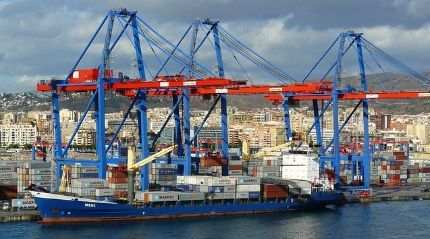What is FCA (Free Carrier)?
In the realm of international trade, the term FCA (Free Carrier) holds significant importance. It represents a contractual agreement between a buyer and a seller regarding the delivery of goods, specifying the responsibilities and obligations of each party involved. Let's delve into the intricacies of DEQ FCA (Free Carrier) to comprehend its nuances comprehensively.

1. What is FCA (Free Carrier)?
FCA (Free Carrier) is an Incoterm that defines the point at which the seller fulfills their obligation to deliver the goods, ready for export, to the carrier nominated by the buyer at a specified place. This nominated place can be the seller's premises, a terminal, a transport hub, or any other agreed location. It's crucial to understand that FCA (Free Carrier) can be used for any mode of transportation, including road, rail, air, or sea.
2. The Purpose of FCA (Free Carrier)
FCA (Free Carrier) serves several purposes in international trade:
- Facilitates Clear Responsibility: FCA clarifies the responsibilities of both the buyer and the seller concerning the delivery of goods. It delineates the point at which the seller's obligation ends and the buyer's responsibility begins.
- Flexibility in Delivery Location: FCA provides flexibility in choosing the delivery location, enabling the buyer to nominate a convenient place for receiving the goods, whether it's at the seller's premises or any other designated point.
- Cost Efficiency: FCA allows the parties involved to optimize transportation costs by selecting an appropriate delivery point and carrier that best suit their requirements.
- Risk Allocation: It defines the transfer of risk from the seller to the buyer at a specified point, thus minimizing uncertainties and disputes during the transportation process.
3. Operating Mechanism of FCA (Free Carrier)
The operation of FCA (Free Carrier) involves the following key steps:
- Agreement on Delivery Point: The buyer and seller agree on the specific location where the goods will be handed over to the carrier.
- Seller's Obligations: The seller is responsible for preparing the goods for export and delivering them to the nominated carrier at the agreed-upon place.
- Carrier Nomination: The buyer nominates the carrier, who may be a shipping line, airline, trucking company, or any other transportation service provider.
- Transfer of Risk: Risk transfers from the seller to the buyer once the goods are delivered to the carrier at the designated location.
- Documentation: The seller provides the necessary documents, such as the commercial invoice, packing list, and export declaration, to the buyer to facilitate the smooth transportation of goods.
4. Considerations for FCA (Free Carrier)
While using FCA (Free Carrier) in international trade, it's essential to consider the following aspects:
- Clarity in Delivery Point: The agreement should clearly specify the exact location where the seller will hand over the goods to the carrier to avoid any confusion or disputes.
- Carrier Selection: The buyer must carefully choose a reliable carrier capable of transporting the goods to the destination safely and efficiently.
- Compliance with Regulations: Both parties should ensure compliance with applicable laws, regulations, and customs procedures governing the exportation and transportation of goods.
- Insurance Coverage: It's advisable for the buyer to arrange insurance coverage for the goods during transit to mitigate any potential risks or losses.
5. Examples of FCA (Free Carrier)
To illustrate the application of FCA (Free Carrier) in international trade, consider the following scenarios:
Scenario 1:
Company A, based in Germany, agrees to sell machinery to Company B, located in China. They decide to use FCA (Free Carrier) as the Incoterm for the transaction. According to the agreement, Company A prepares the machinery for export and delivers it to the carrier at the specified warehouse in Hamburg. Company B nominates a reputable shipping company to transport the machinery to its facility in Shanghai. Once the machinery is handed over to the carrier in Hamburg, the risk transfers from Company A to Company B, and Company B assumes responsibility for the transportation and importation of the goods into China.
Scenario 2:
A textile manufacturer in India enters into a sales contract with a retailer in the United States for the supply of garments. They opt for FCA (Free Carrier) as the agreed Incoterm. As per the terms, the textile manufacturer prepares the garments for export and delivers them to the designated airport in Mumbai. The retailer arranges for a freight forwarder to collect the garments from the airport and transport them to their warehouse in New York. Once the garments are handed over to the carrier in Mumbai, the risk shifts from the textile manufacturer to the retailer, who assumes responsibility for the onward transportation and customs clearance in the United States.
Related articles

 WeChat of CBiBank
WeChat of CBiBank